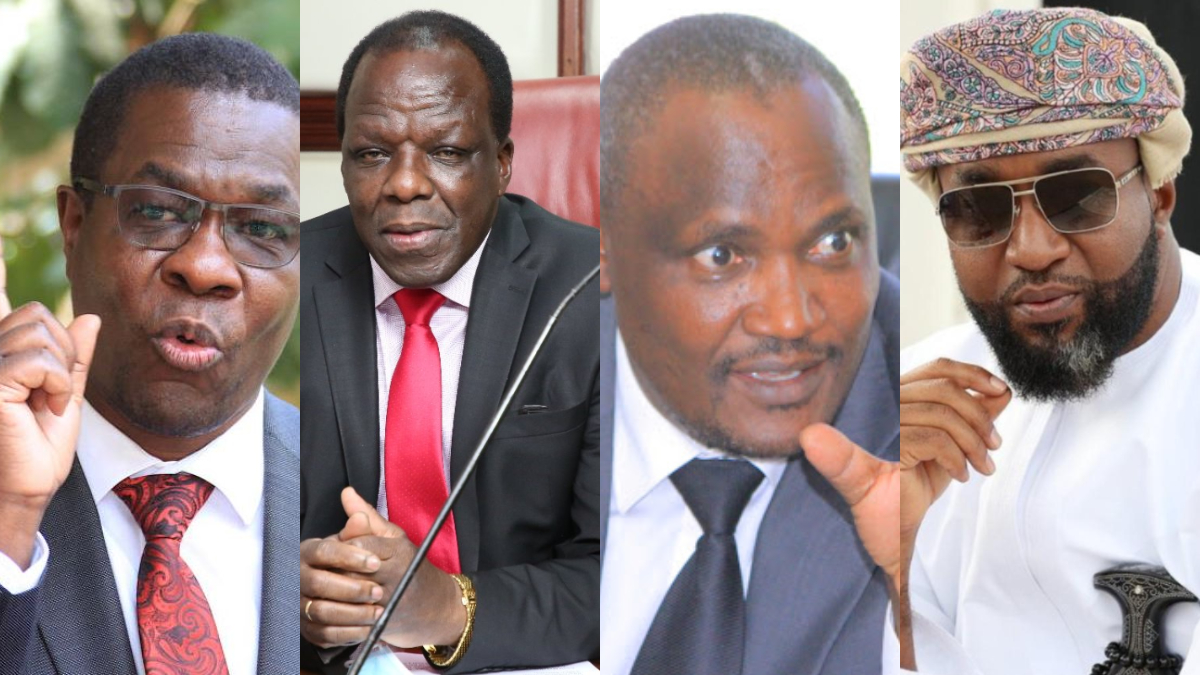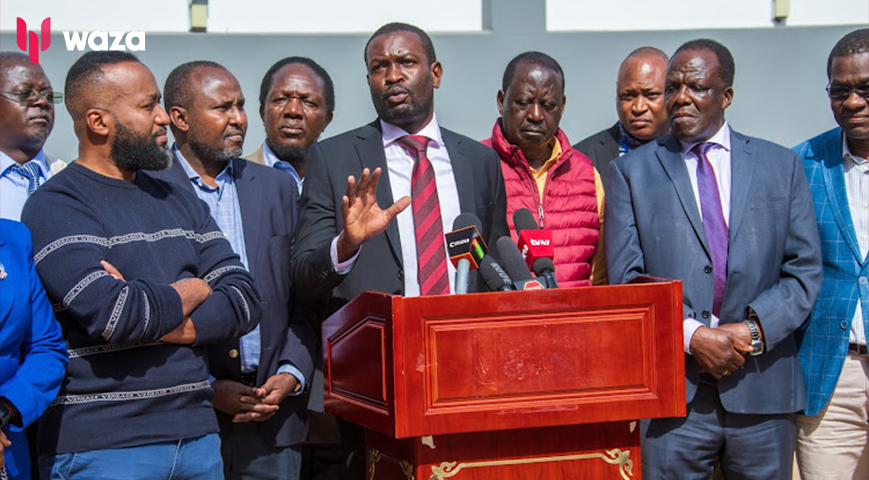ODM Secretary General Edwin Sifuna has clarified that the party did not approve the nomination of four of its members to the Cabinet. On Thursday, Sifuna explained that the decision for ODM Chairman John Mbadi, Minority Leader Opiyo Wandayi, and Deputy Party leaders Hassan Joho and Wycliffe Oparanya to join the Cabinet was made independently by these individuals.
Joho was appointed to the role of Cabinet Secretary for Mining and Blue Economy, Oparanya for Cooperatives and MSME Development, Mbadi for the National Treasury, and Wandayi for Energy and Petroleum. Sifuna emphasized that these appointments were not negotiated by the ODM party, stating that the individuals acted on their own in discussions with President William Ruto and that their actions do not reflect the party's official stance.
"They do not have the party's endorsement. Our position is that they are joining the government in their personal capacities. We don't resent their decision; in fact, we wish them well," Sifuna said. "I can assure you that Mbadi doesn't understand the bottom-up transformative manifesto. Can John Mbadi reduce taxes as the Treasury Cabinet Secretary?"
Sifuna, who is also the Nairobi Senator, expressed that the ODM party needed to have an internal discussion and establish a document outlining their priority areas before any members took up government roles. He reiterated that the party's priorities remain unchanged, and they are not joining the government to discuss other unrelated issues.
Did you read this?

He also noted that there had been no meetings within any ODM party organs to discuss the Cabinet nominations. While the ODM did not endorse the nominations of Mbadi, Joho, Oparanya, and Wandayi, Sifuna acknowledged that these members were aware they were negotiating with President Ruto.
The appointments of these leaders, who are allied with Azimio leader Raila Odinga, were part of President Ruto's broader effort to form a government of national unity. Prior to these nominations, Ruto indicated his intention to consult widely across various sectors and political groups to establish a broad-based government. This government aims to address urgent issues such as debt burden, domestic resource mobilization, job creation, and reducing government inefficiencies. Ruto stated that this team would also be crucial in combating corruption and making the government more efficient and cost-effective.









